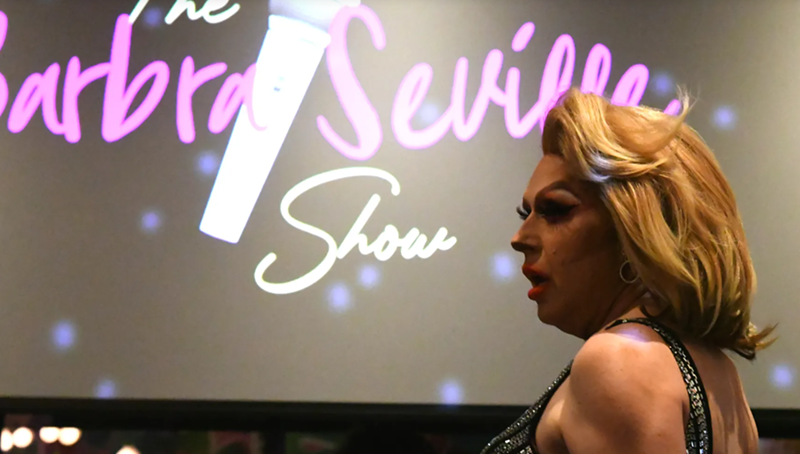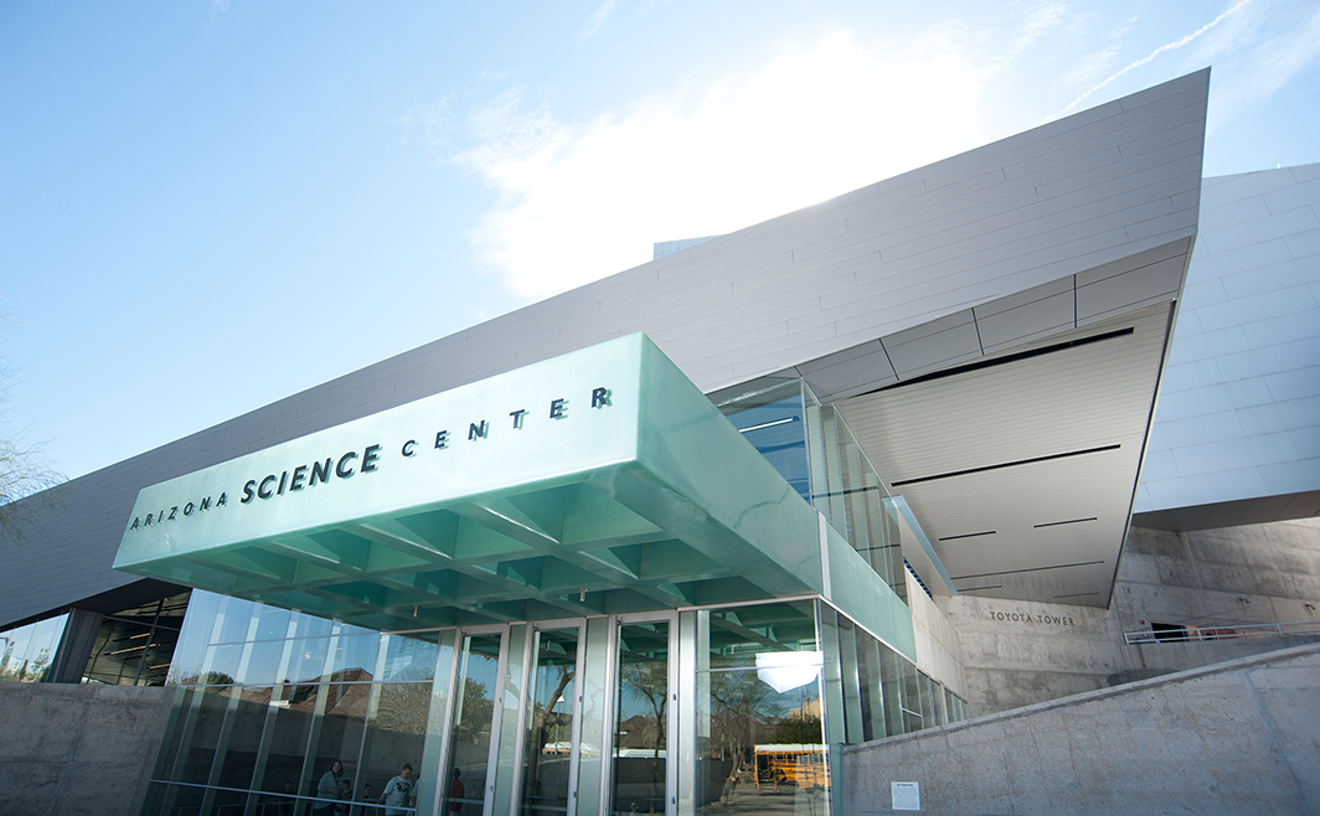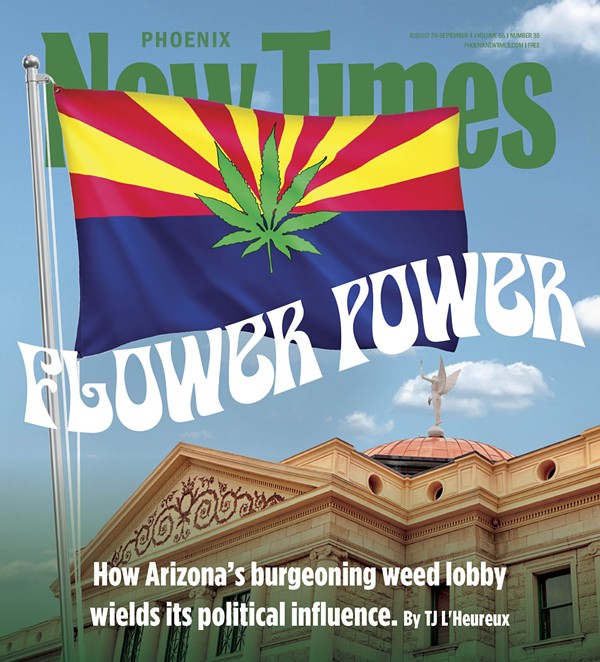From moderate Republicans to MAGAs, the G.O.P. touts itself as pro-business. Job creation, economic prosperity, and fiscal conservatism are cornerstones of the party. At the same time, lawmakers from the right have been laser-focused on limiting a significant economy within the state’s food and restaurant business: drag.
The economy of drag isn’t well known, but there is no questioning the money that goes into it: Drag performers buy expensive stagewear, wigs that cost hundreds of dollars, makeup and other accessories. The hosting venue has to hire staff, from servers and bartenders to DJs and security. They purchase more liquor for drag shows, many of which are held on slower nights or during the day when business owners said the club or bar otherwise would be empty.
Patrons often pay for parking, ride shares and dinners out before the show. Multiply this by the number of shows statewide and throughout the year—drag has become a cash cow.
Demonizing drag and trying to eradicate it would seem to fly in the face of a core value of the right wing.
Still, drag shows continue to be frequent targets of far-right lawmakers in Arizona—a state with a strong history of championing small business.
Senators Anthony Kern (R-Glendale) and John Kavanaugh (R-Fountain Hills) have introduced bills that would limit drag to specific venues only, while the entire party over the past two sessions has signed off on other bills to try and criminalize performers at venues where minors are present.
LGBTQ+ groups have shined a light on these legislative efforts as part of the greater retaliation against a wide range of gender expression. But amid the deluge of hypocrisy delivered daily by right-wing politicians lies another, less-explored facet of drag: This artistic genre has become a thriving mainstream industry. Local bar and restaurant owners told LOOKOUT that attempts to stomp it out would have dire consequences both for the performers and the ancillary businesses they support.
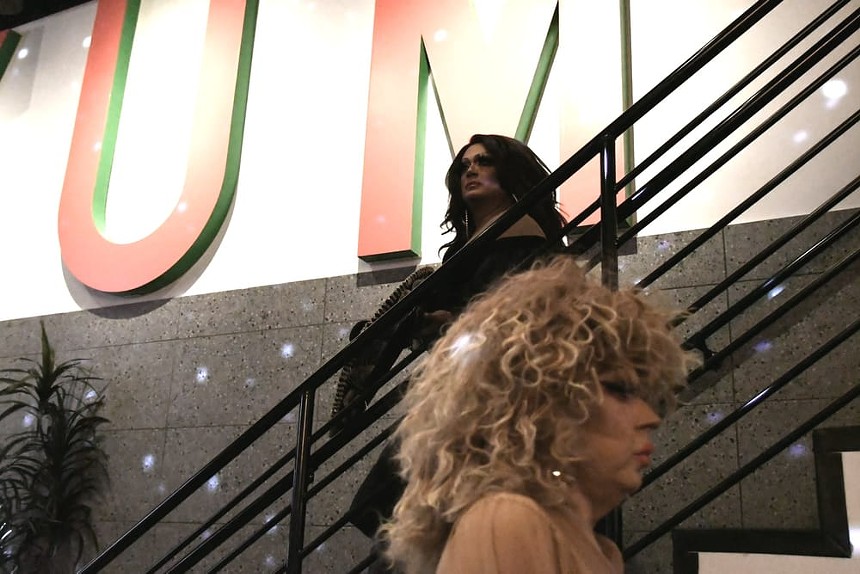
A performer walks down the steps of YUMBAR and prepares to lip sync a song by Selena during a Friday late night drag show.
LOOKOUT
A tapped market
No one has gathered data on drag’s economic impact in Arizona. However, the Greater Phoenix Equality Chamber of Commerce is laying plans to collect it over time.In January, it formed a Drag Coalition to help performers learn skills including marketing, bookkeeping, taxes and more. Through that, it wants to collect sample data.
“I’m hoping we’ll be able to at least come up with enough data that we can extrapolate what the economic impact is; what drag performers are creating in the greater Phoenix area,” said Michele White, executive director of GPECC. “I think it’s going to be through organizations like ours, not a tax designation or state agency.”
In the greater Phoenix area, White estimates, about 20 full-time and 400 part-time drag performers earn money from their craft and another 500 pursue it as a hobby. They’re not just drag queens, either: They run the gamut from straight men sashaying in as a popular female actress to a lesbian woman pulling off an act as a straight male country singer.
One of Phoenix’s best-known full-time performers is Barbra Seville, the persona performed by Richard Stevens.
Twenty-five years ago,“There were maybe two or three bars, and Sunday was their drag night, or Friday, or every Tuesday or once a month,” he said. “I’ll say there were 10 shows a week.”
Those shows were confined mainly to “the gayborhood,” Seville added. Now, drag has spread beyond places like Kobalt, YUMBAR and The Rock to spaces that don’t specifically target LGBTQ+ demographics. He estimates there are at least three or four shows each day or night somewhere, whether it’s a drag show, drag bingo or a drag queen hosting karaoke.
Given the popularity of drag, it’s difficult to imagine what would happen if free speech was dismantled and drag was shut down.
Stevens said one of his regular bingo gigs is at The Playa II Bar and Grill in north Phoenix, where the crowd is “older, straight and probably leaning conservative.”
He also hosts bingo every Wednesday at the Hot Chick in Scottsdale, which attracts 250 to 400 people, among other regular gigs. In addition, he does a handful of private events monthly, including corporate, bachelorette, birthday and graduation parties, and even weddings—he’s an ordained minister.
On top of that, comedy clubs from Stand Up Live in Phoenix to Mic Drop Mania in Chandler host drag bingo and drag shows. Bigger venues like the Celebrity Theater, Dodge Theater, Tempe Center for the Arts and the Van Buren have had shows.
Outside of the metro area, drag shows can be found regularly in Flagstaff and Tucson, and occasionally in smaller communities. For example, over Bisbee Pride weekend this past June, Gene’s Place packed the house with a “Dragasaurus” revue featuring older performers.
Christopher Hall, who performs as Miss Nature, organizes an annual family-friendly drag tour to places like Ajo, Cottonwood, Florence, Lake Havasu, Safford and Show Low. He said that over the past five years, about 10,000 people have attended.
These are just a few examples of how prevalent drag has become and the swells of audiences that keep it afloat.
Dragenomics
Venue operators say it would not be an insignificant hit to the bars, restaurants and clubs that host drag events.Mike Fornelli, who owned the popular BS West in Scottsdale for 35 years until it shuttered earlier this year due to a landlord dispute, said the club's premier drag show, “Elements” (which is now at Walter Studios in Phoenix) tripled his Friday night revenue. It was a big draw for bachelorette parties and other straight groups, he said.
BS West also hosted drag shows on Tuesdays and Thursdays as well as pageant preliminaries on slow nights like Sundays.
“If you’re doing the math, we’re increasing the revenue by at least 50 percent on a slow night,” Fornelli said. “The impact for the bars and businesses hosting these prelims is pretty beneficial.”
The bar employed a staff of roughly 32 to 35, he recalled, including bartenders, servers, a DJ and security. If not for drag, he said, he might only have needed eight or ten workers.
Mic Drop Mania in downtown Chandler also sees a bump in business from its monthly Sunday drag bingo, which began shortly after it opened in January 2023.
Shannon Villavicencio, talent coordinator for parent company Mic Drop Comedy, said drag brunches were going so well at the San Diego location that they offered them here. The employees “really look forward to drag brunches because they’re one of our busiest shows every week,” she said.
She added, “If we were to look at spending per person (on) average, any brunch show is significantly higher than (an evening) show, and drag is even higher.”
Ivey Rapp, business development manager for Walter Productions, said since Elements' move to Walter Studios in May, the crowd on First Fridays has increased tenfold. A drag brunch on the third Saturday also brings in 50 to 100 people.
“To staff these events, we need an extra person in the kitchen and two to three extra bartenders,” Rapp said. “Not only are they excited for the event, but they’re also making good money.”
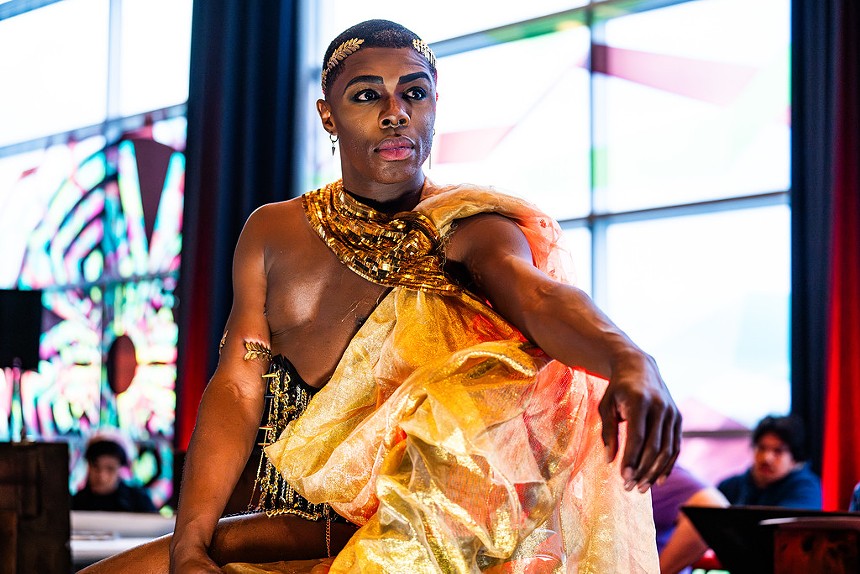
Drag performer Kristofer Inez Onyx says that LGBTQ+ festivals are an important source of revenue for local merchants.
Arianna Grainey/Tempe Center for the Arts
Community effects
Drag has wide-ranging implications beyond boosting income for venues that host shows.“I know performers who, during a pageant season, will spend $100,000 on dresses and wigs,” said White from GPECC.
Performers also buy specially made costumes, larger-than-average shoes and boots, and specially designed jewelry. They hire makeup artists, choreographers and other backstage workers.
The spillover extends to the vendors for the venues, too.
Villavicencio of Mic Drop Comedy said on a typical weekend night, they’ll sell five bottles of sparkling wine but for a Sunday drag bingo, they’ll sell two cases. Rapp of Walter Productions said the margin of liquor during drag events is “incredible.”
Fornelli, the former BS West owner, said customers often went out before the drag shows started, so they supported other area restaurants and bars. People also used the golf cart shuttles and pedicabs that roamed the streets.
Beyond the brick-and-mortar venues, drag is a main attraction at the Rainbows Festival each spring at Heritage Square and Phoenix Pride in the fall at Steele Indian School Park. Rainbows’ attendance was 32,000 in 2024 and Pride saw 34,000 at the park (not including the parade).
Landen C.L. Smith, who performs as Kristofer Inez Onyx, said those festivals are money-makers for food and merchandise vendors and also, through the Phoenix Community Pride Foundation, give back about $120,000 a year in grants and scholarships.
Also, Smith noted, “Just being in the park itself is a cost.” The city charges to use the park and for the permits and liquor license. Organizers also pay for booths, tents, stages, portable toilets, ATMs, point-of-service systems and security.
He added that some bars survived the steep drop in business during COVID due to drag: “There’s definitely a couple bars that wouldn’t be here because drag was one of the only things they could still have.”
Good for business
On a more holistic note, drag encourages diversity and inclusivity, which business owners said drives people to spend more on different kinds of art and entertainment.Villavicencio of Mic Drop Comedy said comedy clubs aren’t known for being “super welcoming” to all types of talent.
But when word gets out that their venues host drag, they get electronic press kits from a wider range of comedians, allowing them to pull from a deeper talent pool. That translates to higher ticket sales for their weekend night shows.
Hall, the performer Miss Nature, said that in addition to paying thousands of dollars to rent venues, drag shows in smaller cities and towns can have long-term ramifications for those areas. Places that welcome diversity could attract more tourism, he said.
Beyond that, those smaller communities that create an inclusive environment have a better chance of keeping and nurturing their people. Those locals might then stay and set up businesses, Hall said.
Hall knows this firsthand: He grew up in Florence but left because of a lack of LGBTQ+ resources.
“People shouldn’t have to leave a place that they call home that they love to feel safe; to feel seen, heard, validated,” he said. “There’s a lot of talent within the LGBTQ community and it would be a waste to see that talent go somewhere else because of (a lack of) acceptance.”
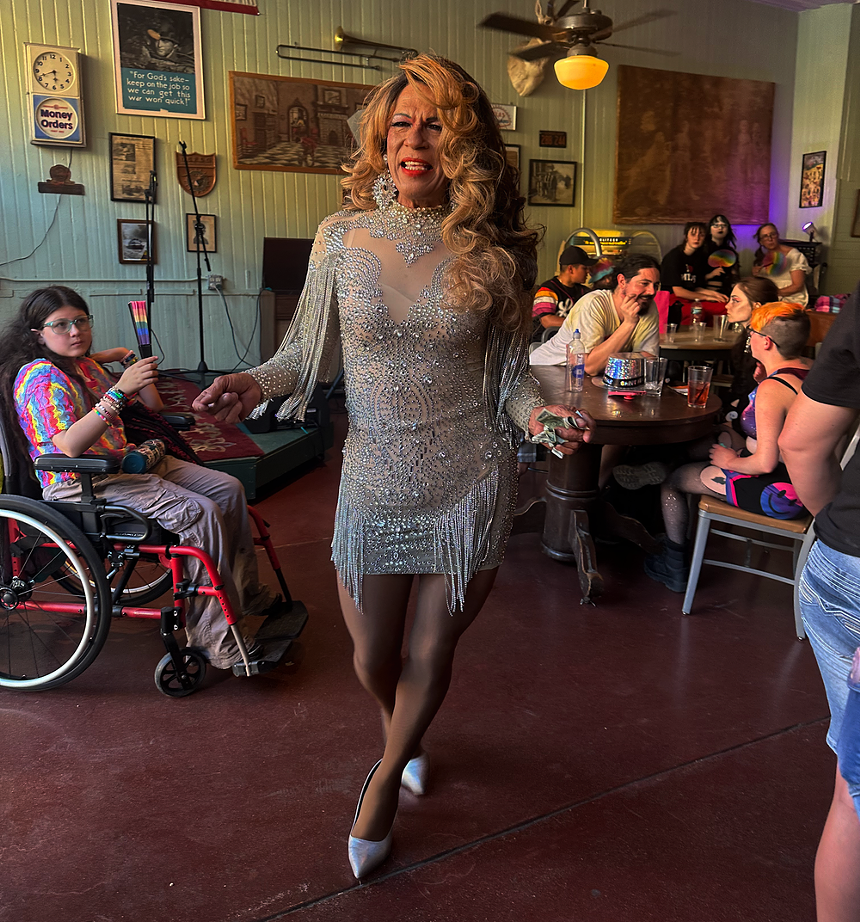
Drag performer Christina De Alexis at Gene's Place during Bisbee Pride. The venue isn't normally a gay one, but still attracts a large crowd during drag brunch.
Geri Koeppel
Fringe appeal
Of course, drag is more than a money engine: It’s an art form that deserves to exist regardless of who profits, performers said. And judges have ruled that the performance is protected speech under the First Amendment.“I don’t like justifying my existence through profitability,” Stevens said, adding that he doesn’t believe most Republicans are “that worked up about it,” but use it as a “talking point, fundraising opportunity, appealing to fringe nuts.”
He should know: Kari Lake, a former Phoenix television anchor turned right-wing politician whom he considered a friend and who had him perform in her home in front of her kids, slammed drag queens on social media in 2022 when stumping for the governor’s seat.
“I think it’s hypocritical, like so much we see in extreme sides of politics — and I would apply that to both sides,” he said.
He continued, “Pick a fight with the LGBTQ community, it’s going to get you on Fox News, it’s going to get you mentioned. Republicans can’t run on economics, they can’t run on job creation, they can’t run on truly protecting children or they’d do something about school shootings. This is their area of expertise.”

